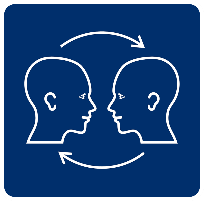Government Response to SEND Code of Practice
FROM ANNA REEVES, ACE CENTRE
The Special Educational Needs and Disability (SEND) Code of Practice, Special Educational Needs and Disability Regulations and the Government’s response to consultation on those documents can be downloaded from:
The availability of the Code, Regulations and information about transitional arrangements will help local authorities and their partners, early years providers, schools, colleges and those working with children, young people and parents in further developing their plans for implementing the reforms from September 2014 onwards.
The Government’s response to the latest consultation was published on 12 June 2014 and includes specific references to the commissioning of local AAC services, equipment and requirements within the Local Offer:
“Joint commissioning arrangements must cover the services for 0-25 year old children and young people with SEN or disabilities, both with and without EHC plans. Services will include specialist support and therapies, such as clinical treatments and delivery of medications, speech and language therapy, assistive technology, personal care (or access to it), Child and Adolescent Mental Health Services (CAMHS) support, occupational therapy, habilitation training, physiotherapy, a range of nursing support, specialist equipment, wheelchairs and continence supplies and. They could include highly specialist services needed by only a small number of children, for instance children with severe learning disabilities or who require services which are commissioned centrally by NHS England (for example some augmentative and alternative communication systems, or health provision for children and young people in the secure estate or secure colleges)” Page 29, Clause 3.9
“NHS England already commissions specialist health services at a regional and national level, so local partners will need to engage and integrate these arrangements to support local joint commissioning activity.” Page 45, Clause 3.68
“The Local Offer should include arrangements providers have in place for… and information…enabling available facilities to be accessed by disabled children and young people and those with SEN (this should include ancillary aids and assistive technology, including Augmentative and Alternative Communication (AAC))” Page 58, Clause 4.32
Once approved by Parliament, the code of practice will come into force in England on 1 September 2014. Whilst this applies in the main to maintained schools, pupil referral units, academies and free schools and non-maintained special schools for children and young people aged 0 to 25 years, it will be of significant interest to local commissioners who may have responsibility for joint commissioning arrangements, including for AAC services and local AAC equipment budgets.






